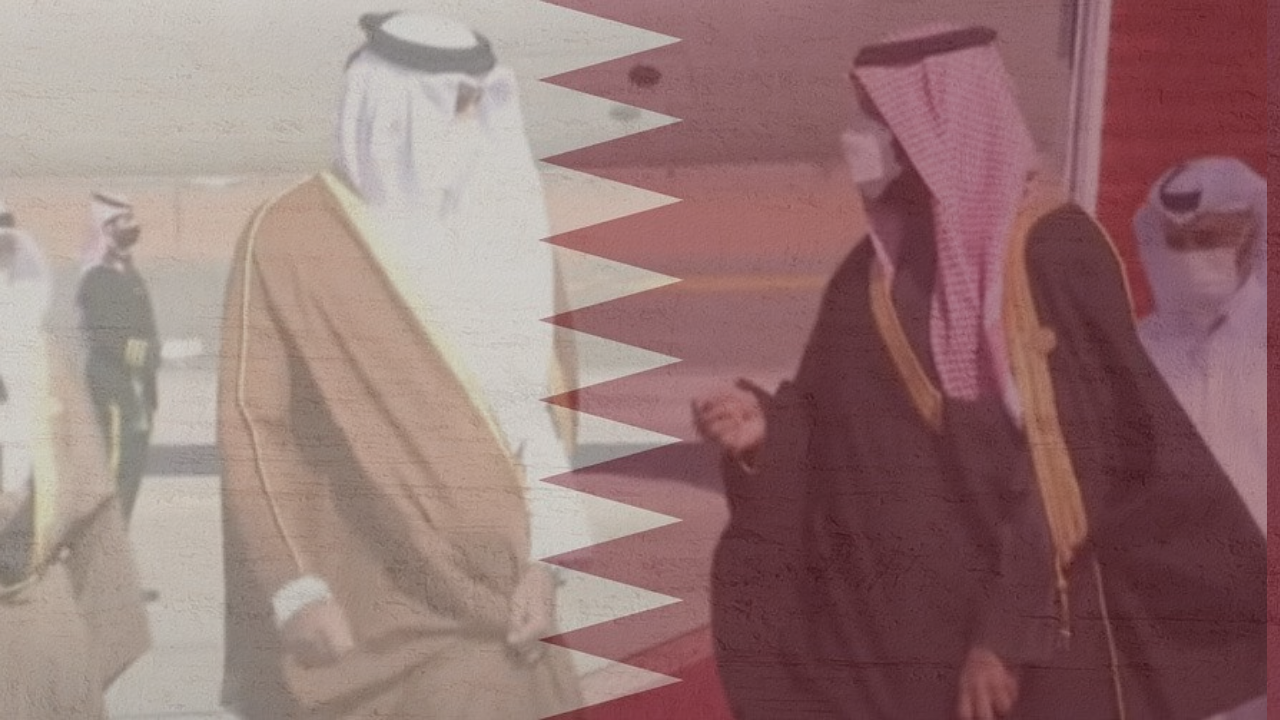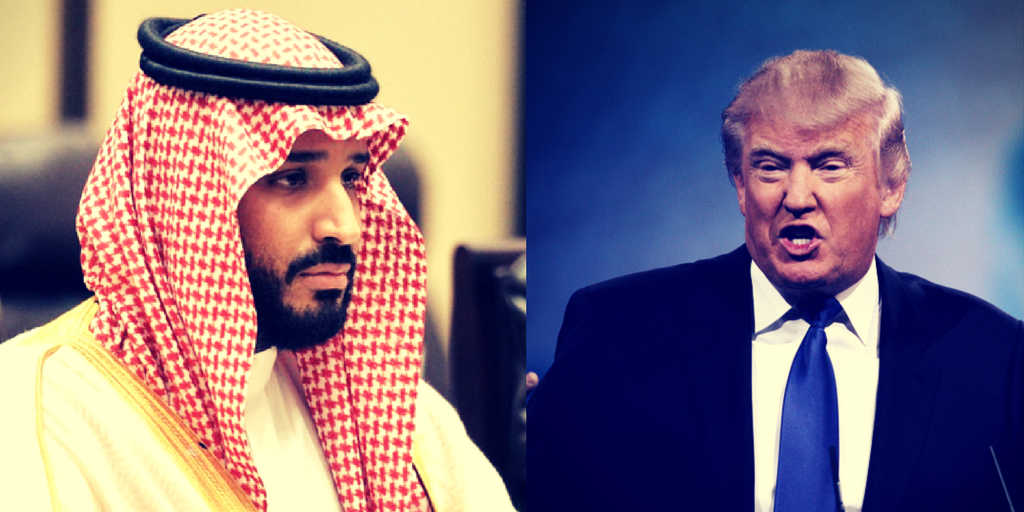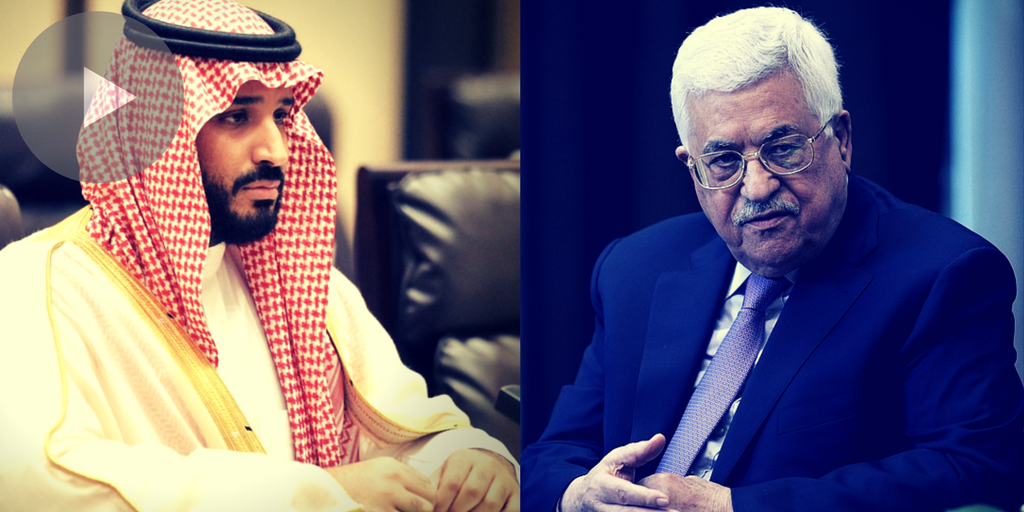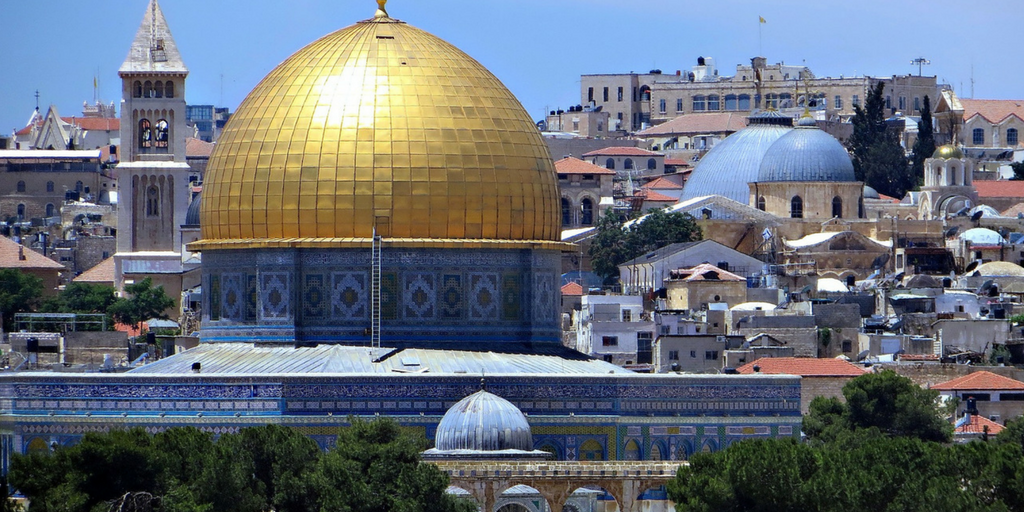A new diplomacy is already changing the Middle East.
What a difference an administration makes.
Under Bush, Muslim World League secretary-general Abdullah Al-Turki described the Jews as “perfidious” and suggested that “it is the natural disposition of the Jews who inherited this deception from their forefathers.”
Under Obama, the Muslim World League Journal ran an article claiming that “Jews” and “Jewesses” run the media. It was one of many violently anti-Semitic pieces that had appeared in the publication.
Under Trump, the Muslim World League sent a letter to the U.S. Holocaust Memorial Museum before the commemoration of International Holocaust Memorial Day expressing, “our great sympathy with the victims of the Holocaust”. It goes on to completely disavow any support for the Holocaust or its denial, “This human tragedy perpetrated by evil Nazism won’t be forgotten by history, or meet the approval of anyone, except criminal Nazis or their genre. True Islam is against these crimes. It classifies them in the highest degree of penal sanctions and among the worst human atrocities ever.”
The letter was signed by Dr. Mohammad Al Issa, the new Secretary General of the MWL who had replaced Al-Turki in the summer of ’16. The MWL is under Saudi control and Al Issa, who is loosely associated with the reformers, was appointed as major changes were sweeping the desert kingdom.
The MWL Holocaust letter never mentions the Jews by name. It was sent to the Holocaust Memorial Museum, a United States government institution, rather than a Jewish communal institution. The new alignment between the United States, Israel and Saudi Arabia is based on a growing threat from Iran. The letter allows Saudi Arabia to distinguish itself from Iran’s anti-Semitic obsession with the Holocaust.
“One would ask, who in his right mind would accept, sympathize, or even diminish the extent of this brutal crime,” the Muslim World League letter asks. The answer is meant to be quite obvious.
Two years ago, Ayatollah Ali Khamenei, the Supreme Leader of Iran, commemorated International Holocaust Remembrance Day with a Holocaust denial video. Iran’s bizarre obsession with Holocaust denial, convening a conference and hosting Holocaust cartoon events, is extreme even by the standards of a region where Mein Kampf is a bestseller and it’s generally believed that Hitler didn’t go far enough.
After Iranian President Mahmoud Ahmadinejad left office, he claimed that his Holocaust denial “broke the spine of the Western capitalist regime.” His successor, Hassan Rouhani, tried to put on a moderate façade by being ambiguous about the subject. And that gives the Saudis an easy opening.
But it’s not just the Iranians.
Not all that long ago, the Muslim World League had hosted Muslim Brotherhood leader Yusuf al-Qaradawi at its First International Islamic Conference on Dialogue. Also present was William W. Baker, a Neo-Nazi, who found a second career appearing at Islamist events to bash Israel.
Qaradawi would later combine the typical Islamist toxic cocktail of Holocaust fantasies and denial by declaring that Allah had sent Hitler to punish the Jews. “The last punishment was carried out by Hitler. By means of all the things he did to them – even though they exaggerated this issue – he managed to put them in their place. This was divine punishment for them. Allah willing, the next time will be at the hand of the believers.” The believers are Muslims. The Brotherhood’s icon was fantasizing about a Muslim holocaust of the Jews. It’s a theme to which Brotherhood clerics frequently return to.
The genocidal hadith once featured in the Hamas charter has recently been preached at mosques from California to New Jersey. “Judgment day will not come until the Muslims fight the Jews. The Muslims will kill the Jews, and the Jews will hide behind the stones and the trees will say: ‘Oh Muslim, oh servant of Allah, there is a Jew hiding behind me, come and kill him.’”
In June of last year, the Muslim World League booted Qaradawi from the Islamic Fiqh Academy. The realignment was strategic. The Saudis, UAE and Egypt were fighting the Brotherhood and Qatar. The new regional battle lines put Iran, Qatar and the Muslim Brotherhood on the same side.
The MWL letter is meant to remind us that the Saudis are different than Iran and the Brotherhood.
The Obama era had broken the old alliance between the Brotherhood and most of their Gulf allies by giving the Islamist group too much and too soon. With political backing from the Obama regime and financial support from Qatar, the Muslim Brotherhood had begun seizing entire countries. Qatar was too drunk on the power of being able to conquer countries with its checkbook to stop. Its former allies isolated it and the Sunni terror state in Doha formed an alliance with the Shiite terror state in Tehran.
The Saudis went looking for allies in strange places. One of those places was Israel. They adapted to a radical new environment with major changes at home and abroad. The MWL letter is a product of shifts in an organization associated with support for the ruthless export of Wahhabism. Those same shifts have opened some limited opportunities for women in Saudi Arabia as it questions Wahhabism.
It would be unwise to read too much into the new Saudi attitude. There have been clear political changes in response to military, social and economic threats. If those threats were to go away, if oil were once again a sure thing, if Iran were to fall apart, if the Islamists became more pliable, then reform would likely prove to be another mirage. Like Gorbachev’s Perestroika, the Saudi reforms are necessitated by circumstances rather than sincerity. They might become the real thing in time.
But it would be a mistake to confuse posturing with principle. Or to disregard its significance.
The repercussions of Osama bin Laden’s original campaign against the House of Saud have transformed the region and the world. 9/11, the Iraq War and the Arab Spring have changed everything. Iran has become a regional power. Islamist organizations have been able to seize entire countries. Energy independence for America and Europe is becoming a reality. Qatar controls the foreign media’s narrative of the region through Al Jazeera. And that narrative is very unfriendly to the Saudis.
The House of Saud responded by questioning whether its arrangement with the House of Wahhab, the two swords on the coat of arms of Saudi Arabia, temporal power and religious power, is still relevant. Its reforms negotiate a complex balancing act between modernizing its political system while still holding on to religious power. The Saudis need America more than ever even as we need them less than ever. Its show of social changes, like the abolition of slavery in response to pressure from JFK, are also a message.
Had Hillary won, the Saudis would have been left alone to mastermind a regional struggle from Yemen to Lebanon to Libya. The former Secretary of State had made it clear that she would double down on the Arab Spring. But instead Trump won. And that’s one of the reasons that the MWL letter exists.
The Trump administration is unlike any of its Republican predecessors. It mixes the type of traditional energy diplomats like Tillerson, whom the Saudis have always been very comfortable with, with non-traditional thinkers and a sprinkling of serious pro-Israel people. Unlike the Bush era neo-conservatives who believed in regional democracy, but who have been frozen out of the Trump administration, they have very little interest in the democracy folly that led to the Arab Spring. Instead they are realists who prioritize fighting terrorism and stabilizing the region by throwing out a lot of the discredited old ideas.
That’s why President Trump imposed a travel ban and recognized Jerusalem, among other moves.
The realists reflect Trump’s desire for results over the misguided fantasies that led to the Palestinian Authority and the Arab Spring. And after decades of negotiating ideological delusions from D.C., the Saudis have eagerly embraced that realism. Trump, the Saudis and the Israelis want to stop Iran, stop the destabilizing expansion of Islamist civil wars and restore a measure of stability to the region.
Trump and Netanyahu want stability because they don’t want the region’s problems to be their problems. Trump doesn’t want to have to deploy more soldiers in more wars. And Netanyahu doesn’t want to see more terrorists showing up on Israel’s borders. Neither man wants Iran to have nukes.
The Saudis want to reclaim their central role in the region. They’ve offered Trump a way out of more regional wars that will be unpopular at home and they’ve offered Netanyahu a “Palestine” solution that may appear more feasible than the PLO dead end represented by Abbas. Like the Trojan Horse, it’s best to be wary of such gifts. But for now they’ve cemented a secretive alliance in a complex conflict.
The Middle East is a region of shifting sands and illusory mirages. Like thirsty caravans crossing the bleak desert, even the experts often see what they want to see. But one thing is as clear as water in the oasis.
President Trump has redefined what we expect of the Saudis. We can’t know whether the ripples in the House of Saud extend below the surface, but we do know that America is a moral authority again.
Originally Published in FrontPageMag.












